Aurora University – Don and Betty Tucker Hall
Cordogan Clark designed Don and Betty Tucker Hall, a student residence hall at Aurora University, specifically tailored to accommodate neurodiverse students with features such as flexible spaces, quiet study areas, and sensory retreat spaces.
Don and Betty Tucker Hall is one of the first student residence halls in the nation designed to support students on the autism spectrum as they earn their degrees and take their first steps toward launching their careers. The five-story student residence hall functions as a living and a learning center that features seventy resident rooms with a mix of single and double rooms, along with single-user restrooms for semiprivate bathrooms, study rooms on every floor, and a fitness center.
By housing in the same residence hall students who are in the Pathways program with students who are not, Tucker Hall is designed to foster a community that is supportive and inclusive, reflecting Aurora University’s mission to enrich campus life through diversity and inclusivity.
Design features that accommodate neurodiverse students include common spaces with flexible seating, quiet study spaces, adjustable lighting, acoustic panels on ceilings and walls to reduce auditory distractions, flooring that reduces sound, and muted colors and patterns that reduce visual stimuli. Individual sensory retreat spaces where students can relax and recharge incorporate soft lighting, soundproofing, and comfortable seating. It minimizes sensory overload by using calming muted colors, non-glare surfaces, and natural materials that promote a soothing atmosphere. It provides designated quiet zones to reduce auditory distractions and offer a peaceful environment for studying or unwinding. All dorm rooms offer color-temperature adjustable lighting and temperature control within each room to provide personalized living environments. Interior accent colors for the spaces were selected based on use.
Communal areas provide a range of seating options to accommodate different preferences for personal space and social interaction, while smaller, quiet social spaces allow students to engage in more intimate conversations or participate in shared activities with peers. Dedicated spaces for support services, such as counseling and therapy rooms, ensure confidentiality and accessibility.
The exterior features large windows to allow interior spaces generous natural light, with orange brick complemented by its blue metal panels. A sensory-friendly landscaped plaza outdoors provides opportunities for relaxation and socialization in a natural setting.
The university’s Betty Parke Tucker Center for Neurodiversity is located on the ground floor and includes offices for Pathways program staff and educational spaces for Pathways students. A centerpiece for the Center is the Mesirow Learning Lab, which blends high-tech offerings and a soothing environment to help neurodiverse students develop vital executive function skills, social skills, and learning strategies.
Design: Cordogan Clark
Contractor: Boldt Construction
Photography: James Steinkamp

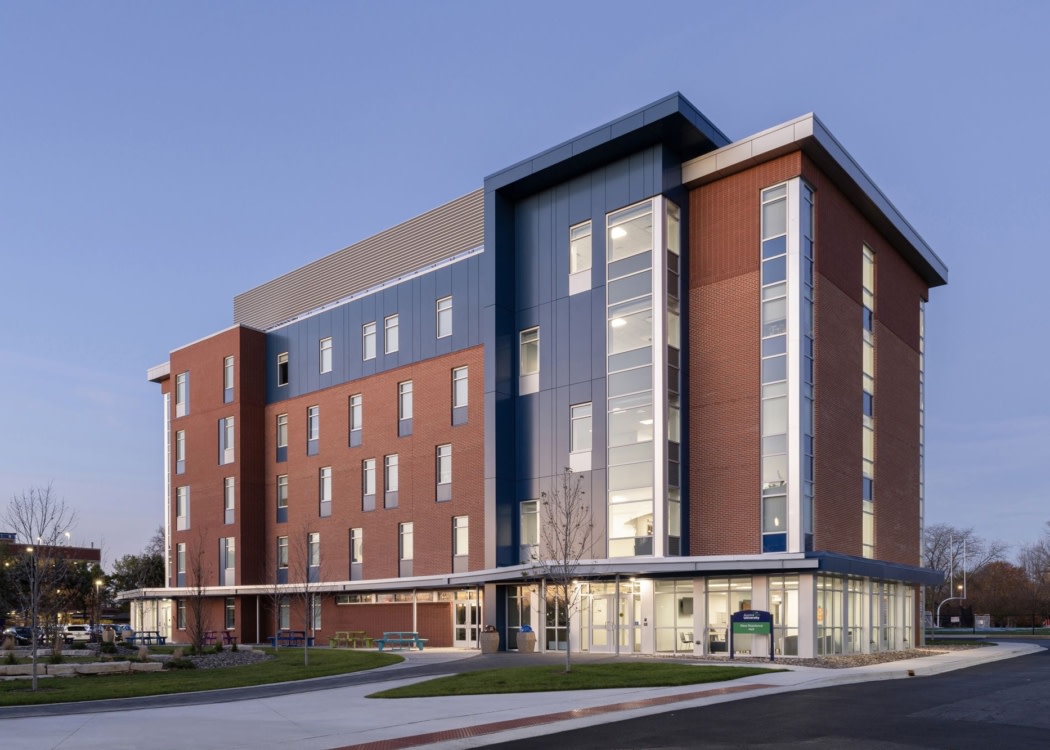
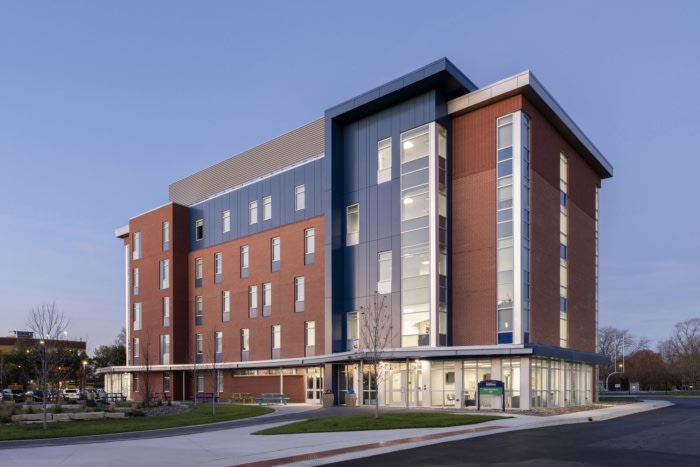
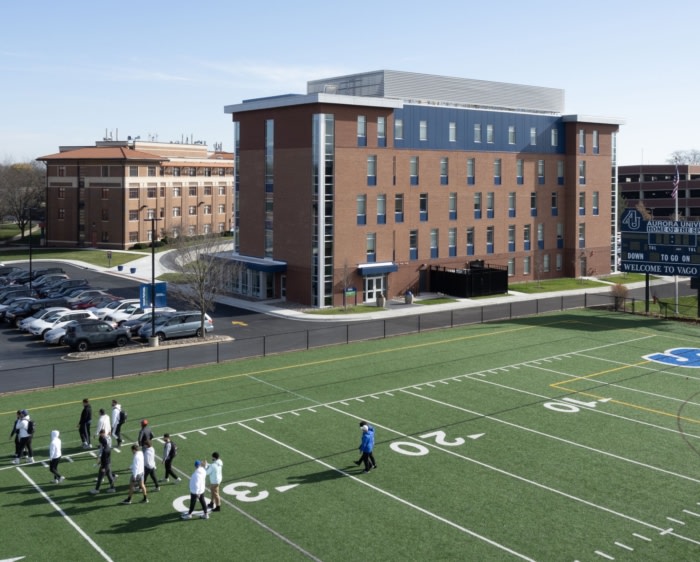
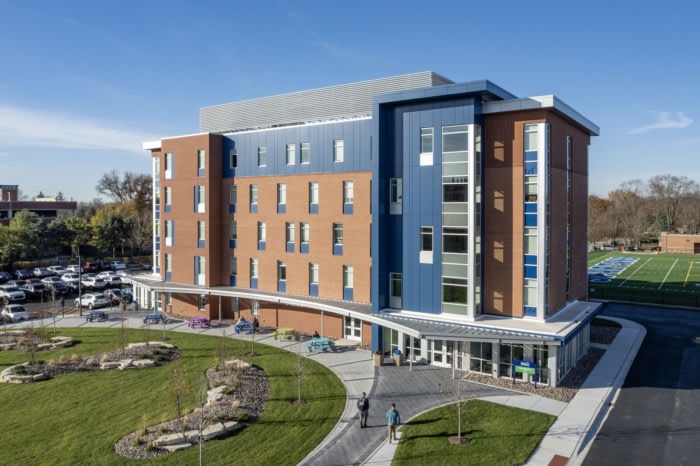
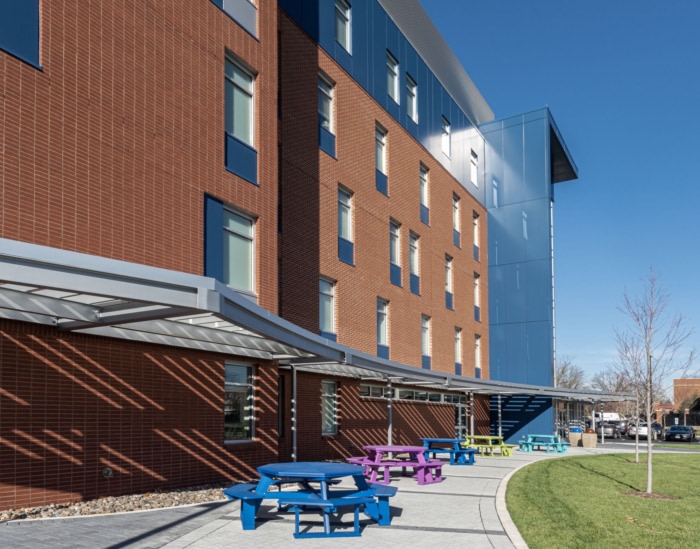
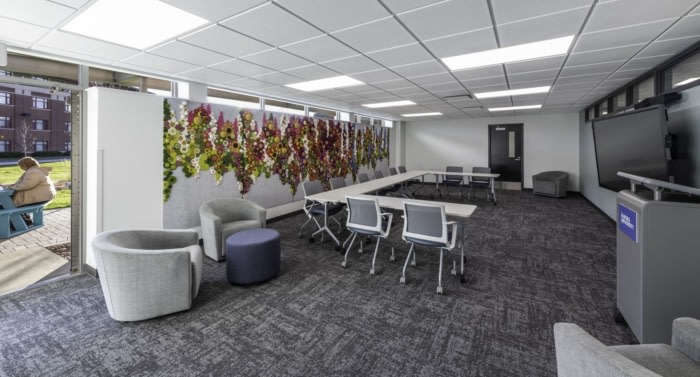
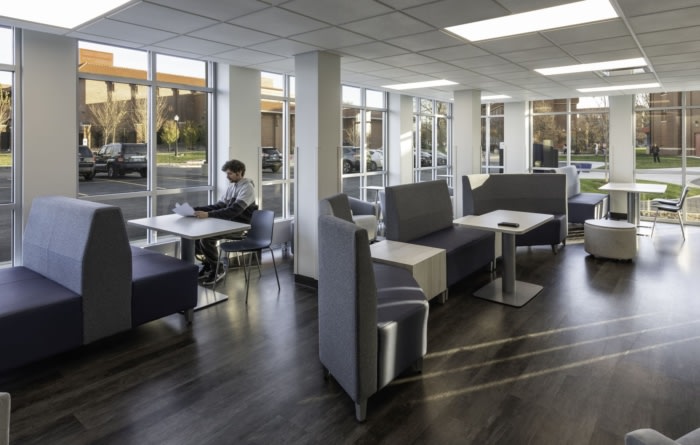
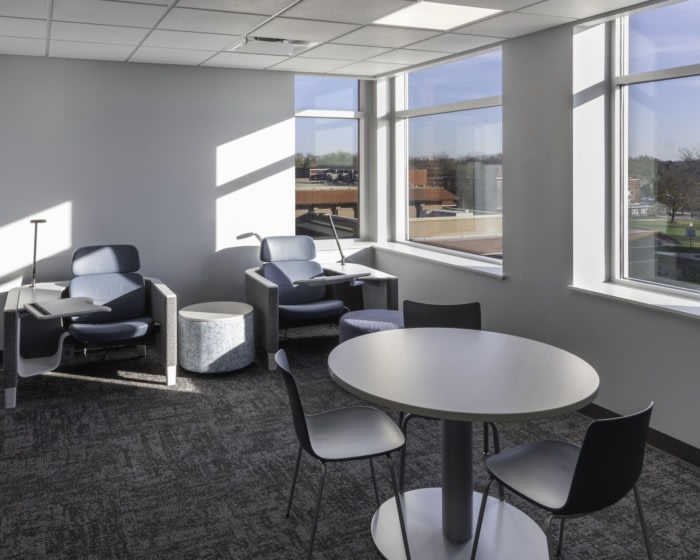


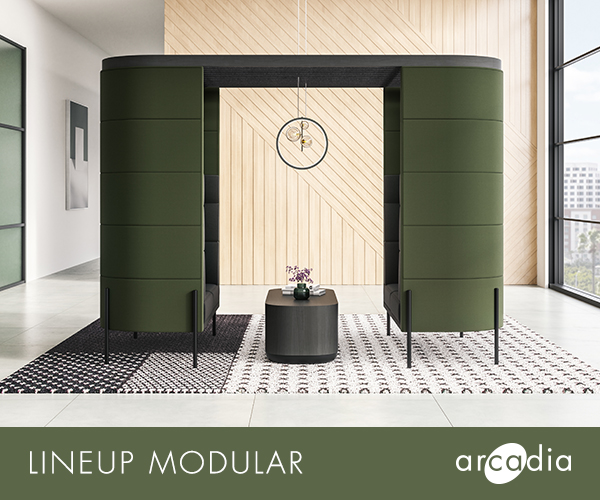
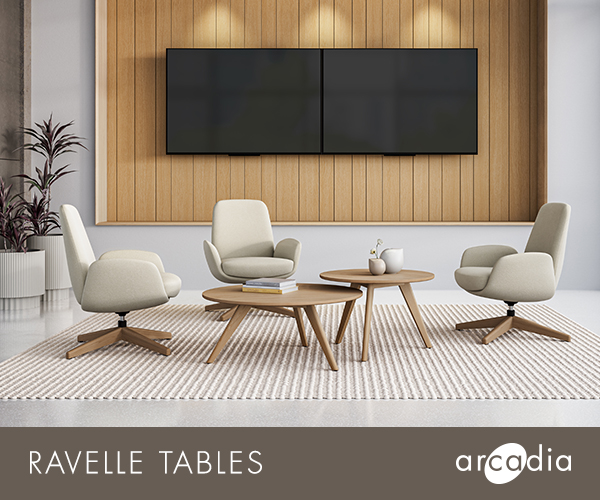
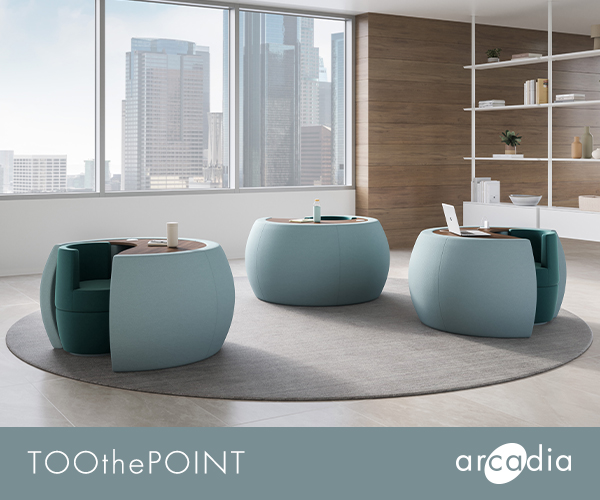



Now editing content for LinkedIn.